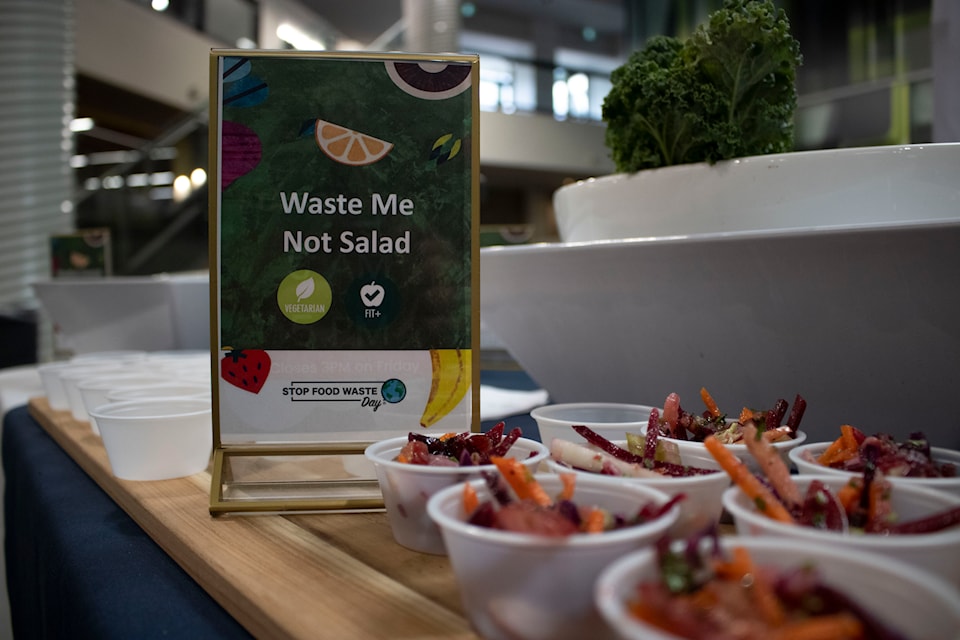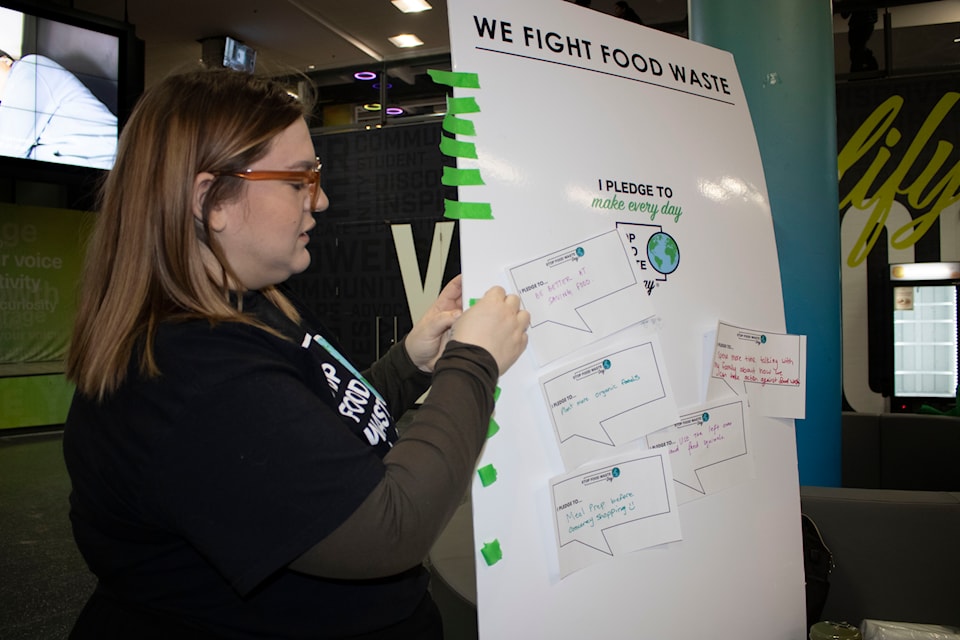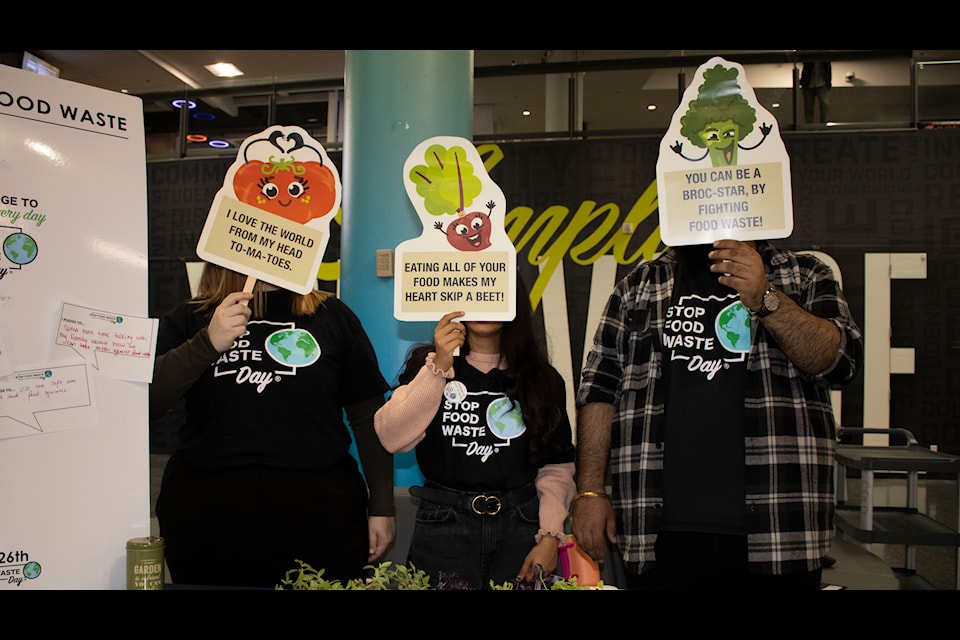Zucchini peels in a muffin, beet peels in salads and free planters for students to take home. This is how Humber Food celebrated Stop Food Waste Day (SFWD) at north campus April 17.
The event, started by food services company Compass Group U.S.A., aims to raise awareness about food waste and mitigate environmental damage caused as a result.
SFWD is observed worldwide on the last Wednesday of April. In Canada, Compass Group marked its ninth annual edition this year.
According to the their website, “Canadians waste over 50 million tonnes of food every year, equivalent to 9.8 million tonnes of CO2.”
Alessa Crispo, senior manager of Student Life and Campus Experience, said that some of the reasons for food waste is lack of awareness on preserving or storing food.
“Annually, 33 per cent of food is wasted globally. And that’s because people aren’t aware of different techniques on how to preserve food, store food or even take food that they would typically otherwise compost or throw away and use it in other purposes,” Crispo said.
At the event, she and her team helped students realize innovative ways in which food waste can be used into tasty recipes.
“We are highlighting some recipes that use food scraps that are perfectly healthy and viable to eat and instead of wasting it, we are re-utilizing it into different recipes. We have the muffin which has zucchini peels and some pineapple bits that were used in our fruit cups on campus,” she said.
In addition to being kind to the environment, Crispo said stopping food waste is also pocket friendly.
“We are talking with students today about how they can take their food waste and turn it into different recipes, spices, ingredients to lower their own greenhouse gases, to save money in their own kitchens,” she said.

In another section, Pawan Sethi, executive chef at Humber Food, tossed salad made out of vegetable peels. He said that it was made out of stuff usually discarded in the kitchen.
“We make sure all the wastage is controlled. This particular salad is made out of carrot trimmings, beet peels and broccoli stalk. The dressing is made out of lemon juice, poppy seed, ground diced fennel … all the basic stuff which we normally do not use in the regular food production,” Sethi said.
The event was set up to replicate a kitchen and home garden. A salad bar, a pledge board and free seed samples adorned the set.
One thing in particular that attracted attention was a blue wheelbarrow that had fresh soil mixed with coffee grounds. A green birdhouse and pinwheel were affixed to the wheelbarrow.
“We have taken the coffee grounds from our Tim Hortons service and put it into the soil. It has a lot of nitrogen, potassium, phosphorus that’s helping to nourish the soil that we can then repurpose to plant some herbs and help our gardens grow nice and strong and healthy,” Crispo said.
The event drew a sizeable crowd. Students were intrigued by the activities and stopped by to participate. They helped turn the soil, pledged to not waste food and planted their own planters.

Jay Rosal, second-year student in the fitness and health-promotion program, planted corn seeds in a pot to take home.
“Nutrition is a big part of fitness and health. I actually ended up planting some corn seeds. And it's going to sprout in seven to 14 days. I'm super excited. I can't wait because I want to eat this myself,” Rosal said.




